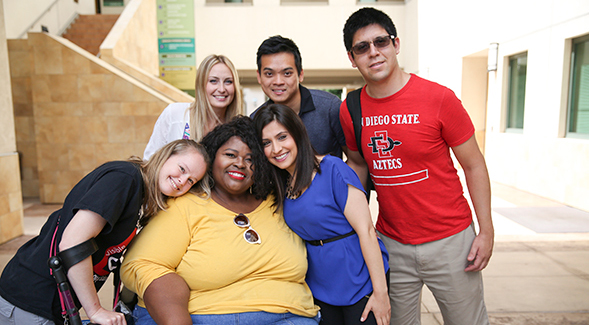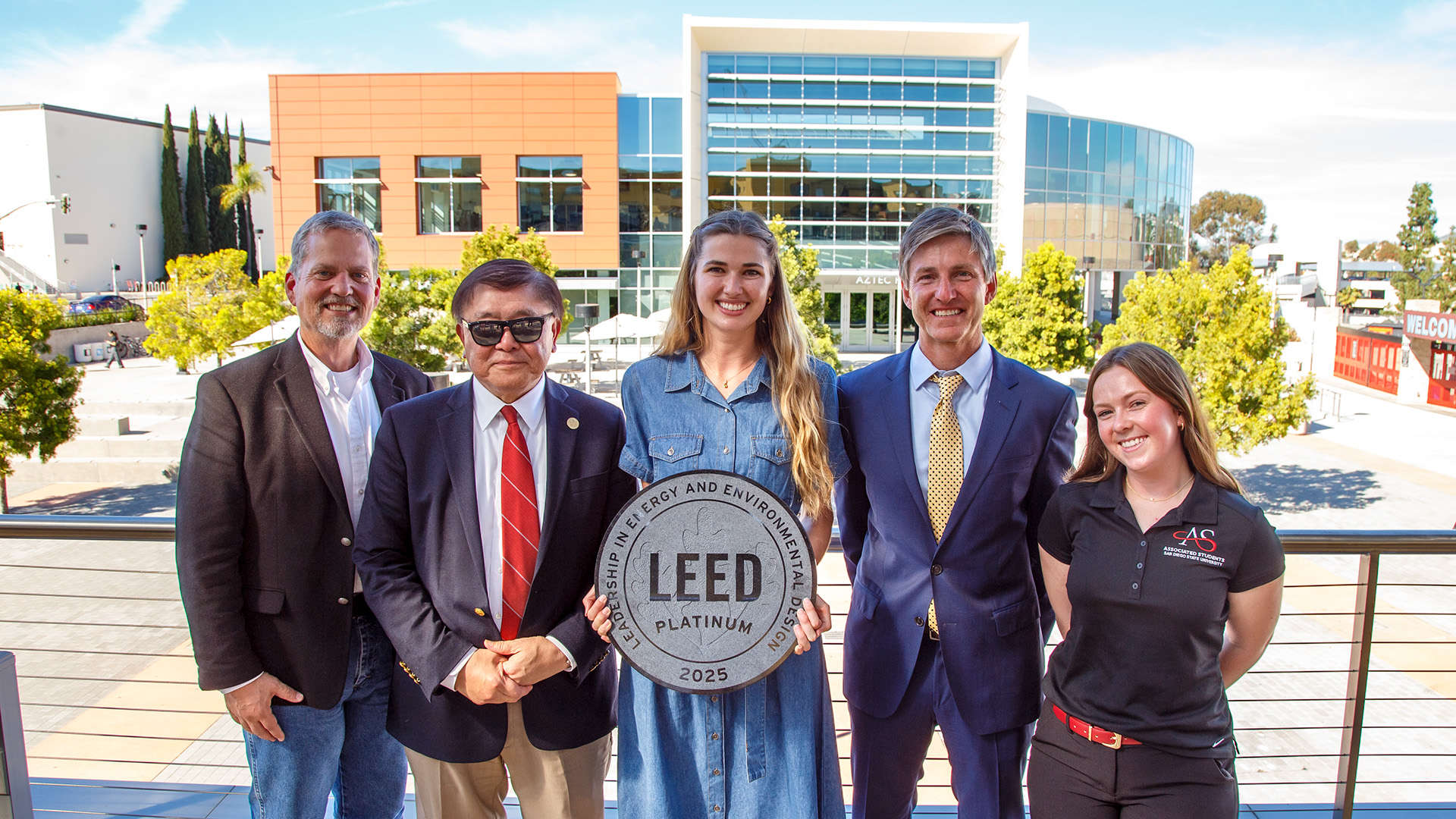Newly Renamed Student Disability Center Reflects Inclusive Mission
The Student Ability Success Center is the new name for the department responsible for supporting students with disabilities.

“Students are able to be the most successful in their academic lives when they have appropriate access and accommodations that meet their specific needs.”
To more closely reflect its inclusive mission and expanded programming in support of students with disabilities, San Diego State University’s Student Disability Services has been renamed the Student Ability Success Center (SASC).
SASC is also expanding efforts to empower students to self-advocate and become more engaged in leadership development and career preparation, said Pamela J. Starr, director of SASC, which is housed in the Division of Student Affairs.
The renamed center is also recruiting SASC Student Advocates who will represent the Student Ability Success Center and its 1,500 students.
“No one tells the (SASC) story better than our students,” Starr said. “SASC Student Advocates will provide a student point of view on SDSU’s effort to ensure that every student has appropriate access, accommodations and support to promote a transformational student experience and timely graduation.”
The advocacy program will complement a number of SDSU programs and services introduced in recent years in support of students with disabilities, including peer mentoring through the TRiO Student Support Services Project and the Ability Ally program.
These efforts are part of a larger shift in the department toward adopting a more inclusive framework for supporting students, Starr added.
“Students are able to be the most successful in their academic lives when they have appropriate access and accommodations that meet their specific needs,” she said. “As we improve student retention and graduation rates overall, our approach centers on whole student development and growth.”
The center is also being reimagined as a space for students to meet, socialize, study and engage with one another and the SASC staff, Starr said.
This whole student philosophy is what drew Savannah Orth to SDSU. Orth developed an autoimmune disease triggered by a virus while she was in high school and experienced changes in her mobility that required use of a service animal. She also needs other academic and housing accommodations. Working with campus partners, SASC helped Orth to access these crucial accommodations.
“SDSU has felt welcoming and friendly to me,” said Orth, a San Diego native and pre-chemistry major. “I felt very lucky to have options in order to transition from high school and succeed academically. These are simple things, but they make a big difference.”
Fellow SDSU student Isela Zavala did not know she could benefit from accommodations until she ran into academic challenges. No matter how much she studied and understood her course materials, she would most often underperform on exams.
Zavala, a psychology major, turned to SASC for help, even though she not previously been diagnosed with a disability. After an assessment, she learned that she had an anxiety disorder.
“I felt I was already using all the resources I could, but I didn’t know that having extra time for exams would have such a huge, positive impact on my stress load and anxiety,” Zavala said.
Within a semester of gaining support from the department and her faculty members—including extra time to complete exams and a distraction reduced environment to take the exams—Zavala said her GPA improved significantly, from 1.98 to 2.7.
She hopes that the SASC’s higher profile and expanded outreach will encourage other students to learn more about the center’s services.
“Some people may not understand that there are different types of disabilities,” Zavala said. “I regret not looking for these services earlier, but I am so thankful I eventually found all the resources I need to make me a successful student.”
About the SASC
The Student Ability Success Center supports students with disabilities, including but not limited to: attention deficit disorder, deaf and hard-of-hearing, learning disabilities, physical and chronic disabilities, psychological disabilities and visual impairments. Students with temporary disabilities may also request assistance. Those who are unsure about SASC eligibility requirements are encouraged to reach out to the center.
For more information about SASC, or to volunteer as a member of the SASC Student Advocates group, contact Pamela J. Starr, the center’s director, at [email protected].



